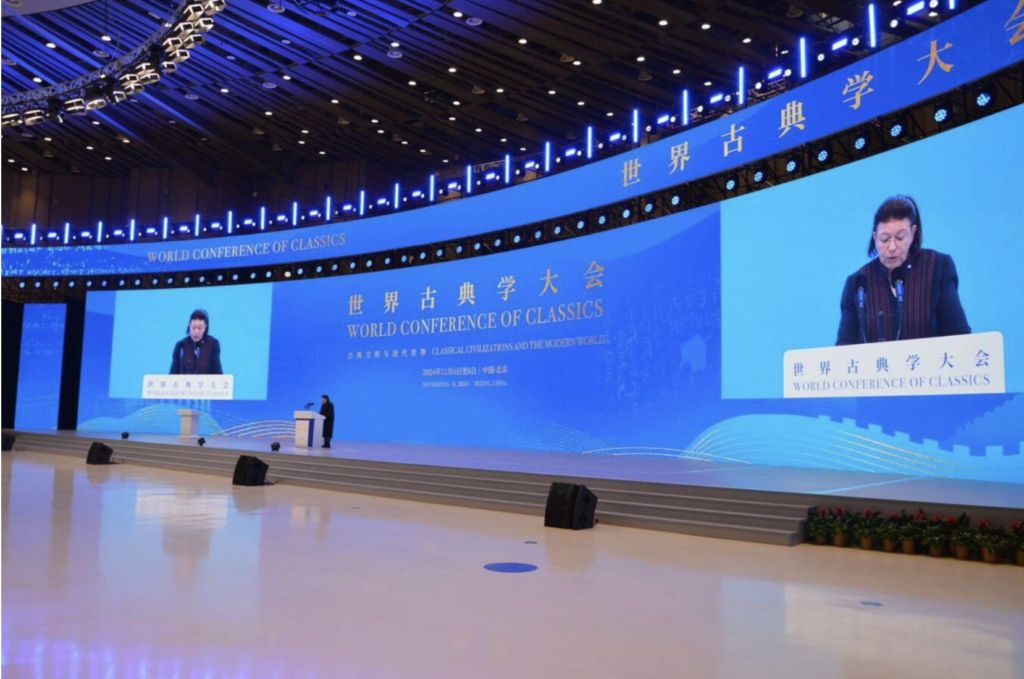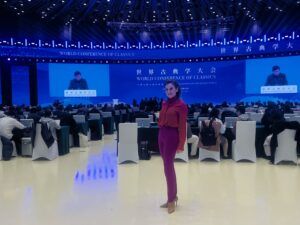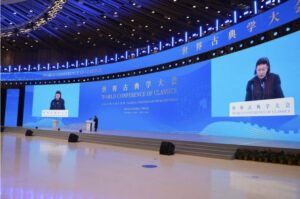by Eugenia Manolidou
The first World Congress of Classical Studies, held in Beijing from November 6 to 8, 2024, brought together professors and academics to discuss the relevance of ancient wisdom in a rapidly evolving world. However, beyond academic debates, the conference unveiled something deeper: China’s determination to establish its own classical identity. In the presence of the Greek Minister of Culture, Lina Mendoni and the President of the Chinese Academy of Social Sciences, Xiang Gao, a historic announcement was made: the establishment of the first Chinese School of Classical Studies in Athens.
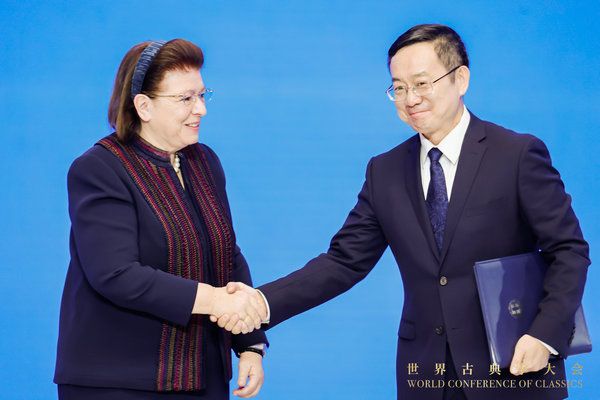
This collaboration marks a new chapter in China’s relationship with Classical Studies, a field traditionally rooted in the antiquity of the West. While Greece naturally acknowledges its classical heritage, this initiative raises intriguing questions about China’s motivations to integrate Classical Studies into its educational system – a discipline it had not previously categorized as such.
At the closing ceremony of the congress, the President of the Chinese Academy summarized the meeting’s outcomes with a forward-looking perspective. He highlighted how the enduring principles of the classical era could serve as a stabilizing force in a world where technology advances at unprecedented speed. He argued that the wisdom embedded in ancient texts could guide the ethical development of artificial intelligence, ensuring that it serves humanity rather than the other way around.
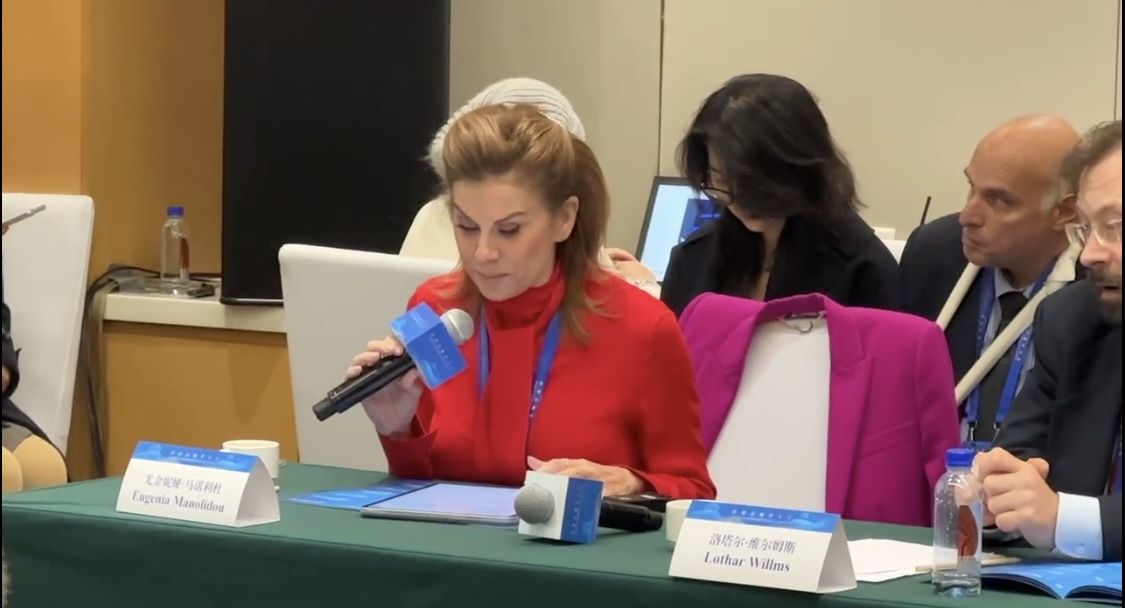
One cannot help but wonder if China’s engagement with Classical Studies is part of a broader ambition for cultural influence. China already boasts an extraordinary cultural legacy, with millennia-old philosophies and a unique contribution to human knowledge. Yet, by adopting the Western term “Classical Studies,” it seems to be crossing cultural boundaries, potentially aiming to position itself as an equal player in the global field of intellectual heritage—or even to bolster its rising influence on the international stage and in education.
It is no coincidence that China and Greece – two civilizations with rich ancient heritages – are at the forefront of this effort to elevate Classical Studies. For those of us privileged to attend the congress and witness this pivotal moment, it is clear that China’s engagement with Classical Studies is not merely an academic pursuit, but a cultural and strategic endeavor. As China and Greece collaborate to develop an academic network in Classical Studies, they send a powerful message to the world: ancient wisdom is not a relic of the past but a vital necessity, a source of stability, insight, and ethical guidance.
I firmly believe that the next World Congress of Classical Studies should be held in Greece, the birthplace of classical thought and the embodiment of the principles of knowledge and wisdom celebrated at this congress. Hosting it in Greece would honor the cradle of the Classical world while reminding us of its timeless value – a legacy that, as heirs to a great civilization, we often tend to overlook.
